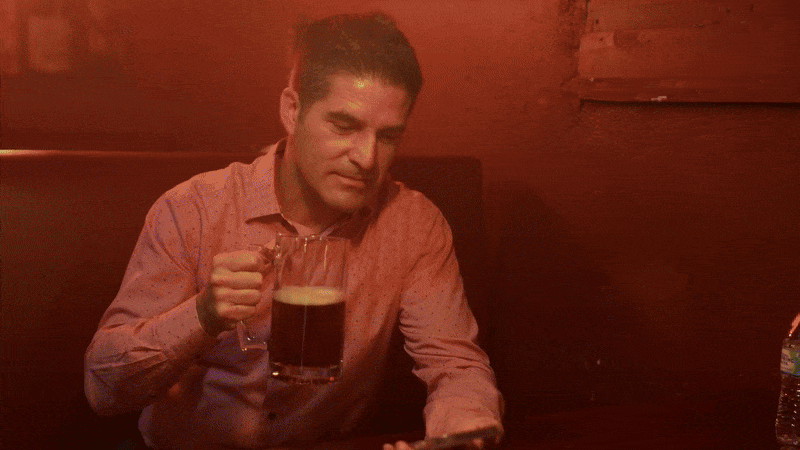Welcome to Psychology: A Starter Guide for Debaters
Psychology is a fascinating field with numerous schools of thought, each offering different insights into human behavior, emotions, and cognition. For anyone entering a debate about psychology, it's important to understand that different approaches can lead to very different conclusions about why people act the way they do. This guide will introduce some of the major players and approaches in psychology, giving you the basic tools to navigate conversations and debates about the mind.

Welcome to Psychology: A Starter Guide for Debaters explores key psychological theories and influential figures like Freud, Skinner, Piaget, Beck, and more. Perfect for those interested in understanding different schools of thought in psychology.
Whether you're discussing therapy, mental health, or the reasons behind human behavior, these key psychological schools of thought will help you understand where people are coming from and how different perspectives clash or complement each other.
Understanding the Schools of Thought in Psychology
Psychology has no one-size-fits-all explanation for human behavior. Different thinkers emphasize different aspects of the mind and behavior, often based on the science, theories, or cultural context of their time. Here’s a breakdown of the main schools of thought that will likely come up in discussions.
1. Psychoanalysis (Sigmund Freud)
- Core Idea: Freud believed that our behaviors are driven by unconscious forces, primarily unresolved conflicts from childhood and repressed desires, often related to sexuality and aggression.
- Debate Point: Freud’s ideas laid the foundation for much of modern psychotherapy, but many criticize his overemphasis on sex and childhood trauma. Freud’s focus on the unconscious has been rejected or modified by many later psychologists.
- Where You'll Encounter It: Freud’s theories still come up in discussions about therapy, the unconscious mind, and in exploring how early experiences shape adult behavior.
2. Behaviorism (B.F. Skinner and John Watson)
- Core Idea: Behaviorists believe that psychology should only study observable behaviors, not the mind or unconscious processes. They argue that behavior is learned through interactions with the environment, and reinforced by rewards and punishments.
- Debate Point: Behaviorism was revolutionary in introducing scientific rigor to psychology, but critics argue that it ignores emotions, thoughts, and the complexities of the human experience.
- Where You'll Encounter It: Debates about conditioning, learning, and behavior modification, especially in fields like education and therapy for conditions like autism.
3. Cognitive Psychology (Aaron Beck and Jean Piaget)
- Core Idea: Cognitive psychologists focus on how people think, perceive, and process information. They emphasize the role of thoughts in shaping emotions and behaviors, often aiming to change negative thinking patterns to improve mental health.
- Debate Point: This approach is widely accepted in therapy today, particularly in the form of Cognitive Behavioral Therapy (CBT). However, some argue that it doesn’t account for deeper unconscious processes or social influences.
- Where You'll Encounter It: In discussions about mental health treatment, problem-solving, and learning.
4. Humanistic Psychology (Abraham Maslow and Carl Rogers)
- Core Idea: Humanistic psychology focuses on the positive aspects of human nature, such as free will, self-actualization, and personal growth. It’s about helping people reach their full potential and finding meaning in life.
- Debate Point: While humanistic psychology emphasizes optimism and personal responsibility, critics argue it can be too idealistic and lacks the scientific rigor of other approaches.
- Where You'll Encounter It: Discussions on personal development, self-help, and therapy that focus on achieving personal fulfillment.
5. Neuroscience and Biological Psychology
- Core Idea: Neuroscientists focus on the biological and chemical processes that influence behavior, such as brain structures, hormones, and neurotransmitters. This approach is based on empirical, scientific research and brain imaging.
- Debate Point: While this approach provides solid, measurable evidence for how the brain influences behavior, critics argue that it overlooks the emotional, psychological, and social dimensions of human experience.
- Where You'll Encounter It: In debates about mental health treatment, especially regarding medication for depression, anxiety, or ADHD, and in discussions about brain plasticity or neurodiversity.
6. Social and Cultural Psychology (Lev Vygotsky and Erving Goffman)
- Core Idea: Social psychologists study how society, culture, and social interactions shape human behavior. This field explores everything from how we form beliefs to how societal expectations affect our mental health.
- Debate Point: This approach emphasizes external, environmental influences on behavior, sometimes at the expense of understanding the internal, personal psychological processes.
- Where You'll Encounter It: In conversations about social justice, cultural differences in behavior, and how group dynamics or societal norms influence people.
Debating Psychology: Finding Your Approach
When entering debates about psychology, it's important to know which framework the other person is operating from. For example:
- Someone leaning on Freudian psychoanalysis might argue about childhood traumas shaping behavior.
- A behaviorist will be more interested in what actions can be observed and changed.
- An advocate for neuroscience might focus on how brain chemistry and genetics explain mental health issues.
Understanding these perspectives helps you engage more effectively in debates, recognize biases, and even challenge certain viewpoints based on evidence from other schools of thought.
Conclusion: Psychology is a Debate in Itself
Psychology is a field of diverse opinions and conflicting theories. Knowing the different approaches—psychoanalysis, behaviorism, cognitive psychology, and more—gives you the foundation to enter debates with a clearer sense of where different arguments come from. Whether you're discussing mental health, therapy, or human behavior, the key is understanding that there’s no single answer, but rather many ways to explore the human mind.
For a deeper dive into the various psychological frameworks, check out our Quick Facts Guide at the end of this article, which summarizes some of the most influential figures and theories in psychology.
Quick Facts Guide: Key Figures in Psychology
Sigmund Freud
- Known For: Founder of Psychoanalysis
- Born: May 6, 1856, in Příbor, Czech Republic
- Died: September 23, 1939
- Key Concepts: Unconscious mind, defense mechanisms, psychosexual stages, Oedipus complex
- Famous Works: The Interpretation of Dreams, Civilization and Its Discontents
- Legacy: Often criticized for focusing too much on sexuality, but he laid the groundwork for understanding the unconscious mind and early therapeutic practices.
B.F. Skinner
- Known For: Behaviorism
- Born: March 20, 1904, in Susquehanna, Pennsylvania, USA
- Died: August 18, 1990
- Key Concepts: Operant conditioning, reinforcement, behavior modification
- Famous Works: Walden Two, Beyond Freedom and Dignity
- Legacy: Revolutionized psychology by focusing on observable behavior, though critics argue it ignores internal thoughts and emotions.
Jean Piaget
- Known For: Developmental Psychology
- Born: August 9, 1896, in Neuchâtel, Switzerland
- Died: September 16, 1980
- Key Concepts: Cognitive development stages (sensorimotor, preoperational, concrete operational, formal operational)
- Famous Works: The Origins of Intelligence in Children, The Child's Conception of the World
- Legacy: His theories are central to education, though some argue they overlook social and emotional development.
Aaron Beck
- Known For: Cognitive Therapy
- Born: July 18, 1921, in Providence, Rhode Island, USA
- Died: November 1, 2021
- Key Concepts: Cognitive distortions, negative thinking patterns, Cognitive Behavioral Therapy (CBT)
- Famous Works: Cognitive Therapy and the Emotional Disorders
- Legacy: Beck’s work is foundational in modern therapy, especially for treating depression and anxiety by focusing on altering distorted thinking.
Abraham Maslow
- Known For: Humanistic Psychology
- Born: April 1, 1908, in Brooklyn, New York, USA
- Died: June 8, 1970
- Key Concepts: Hierarchy of needs, self-actualization
- Famous Works: Motivation and Personality, Toward a Psychology of Being
- Legacy: His positive approach to psychology emphasized personal growth, though some see his theories as overly idealistic.
Carl Rogers
- Known For: Client-Centered Therapy, Humanistic Psychology
- Born: January 8, 1902, in Oak Park, Illinois, USA
- Died: February 4, 1987
- Key Concepts: Unconditional positive regard, self-concept, the actualizing tendency
- Famous Works: On Becoming a Person
- Legacy: Rogers' focus on empathy and active listening transformed psychotherapy, but critics argue it lacks scientific rigor.
Carl Jung
- Known For: Analytical Psychology
- Born: July 26, 1875, in Kesswil, Switzerland
- Died: June 6, 1961
- Key Concepts: Collective unconscious, archetypes, individuation, synchronicity
- Famous Works: The Archetypes and the Collective Unconscious, Man and His Symbols
- Legacy: Jung’s ideas are celebrated in fields like art and spirituality, but some view his work as too philosophical for scientific psychology.
Lev Vygotsky
- Known For: Sociocultural Theory
- Born: November 17, 1896, in Orsha, Russian Empire
- Died: June 11, 1934
- Key Concepts: Zone of proximal development, social interaction in learning
- Famous Works: Thought and Language, Mind in Society
- Legacy: Vygotsky’s emphasis on the role of social and cultural context in learning is influential in education, though his work was largely ignored for decades due to political reasons in the Soviet Union.
What's Your Reaction?





























_at_Hillsboro_Road_(Virginia_State_Route_690)_in_Hillsboro%2C_Loudoun_County%2C_Virginia.jpg/240px-thumbnail.jpg)












![Round One of 'Did You Know He Was...Whoite [sic]'](https://news.awc.ac/uploads/images/202409/image_430x256_66eb6319e5d76.jpg)















